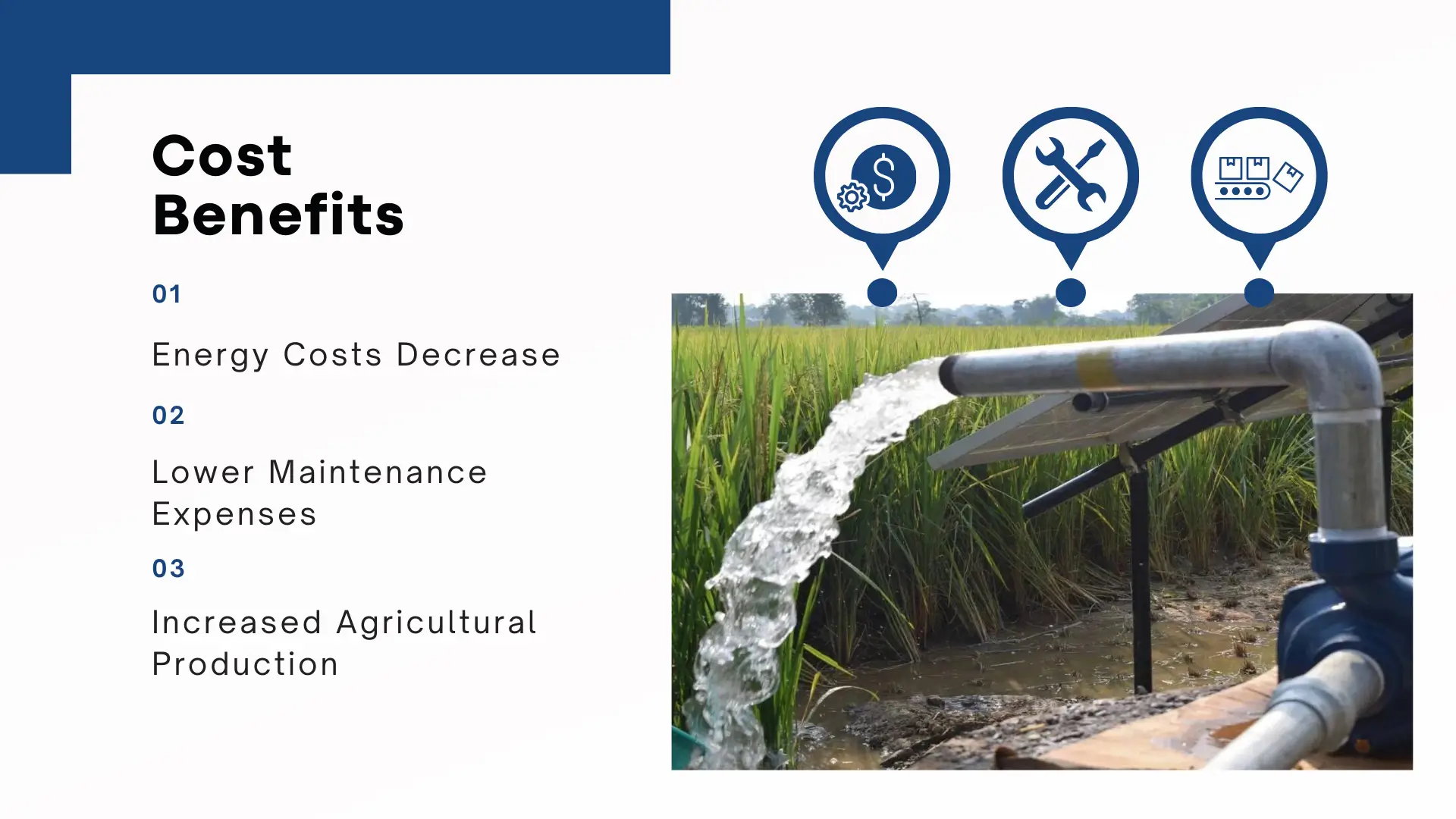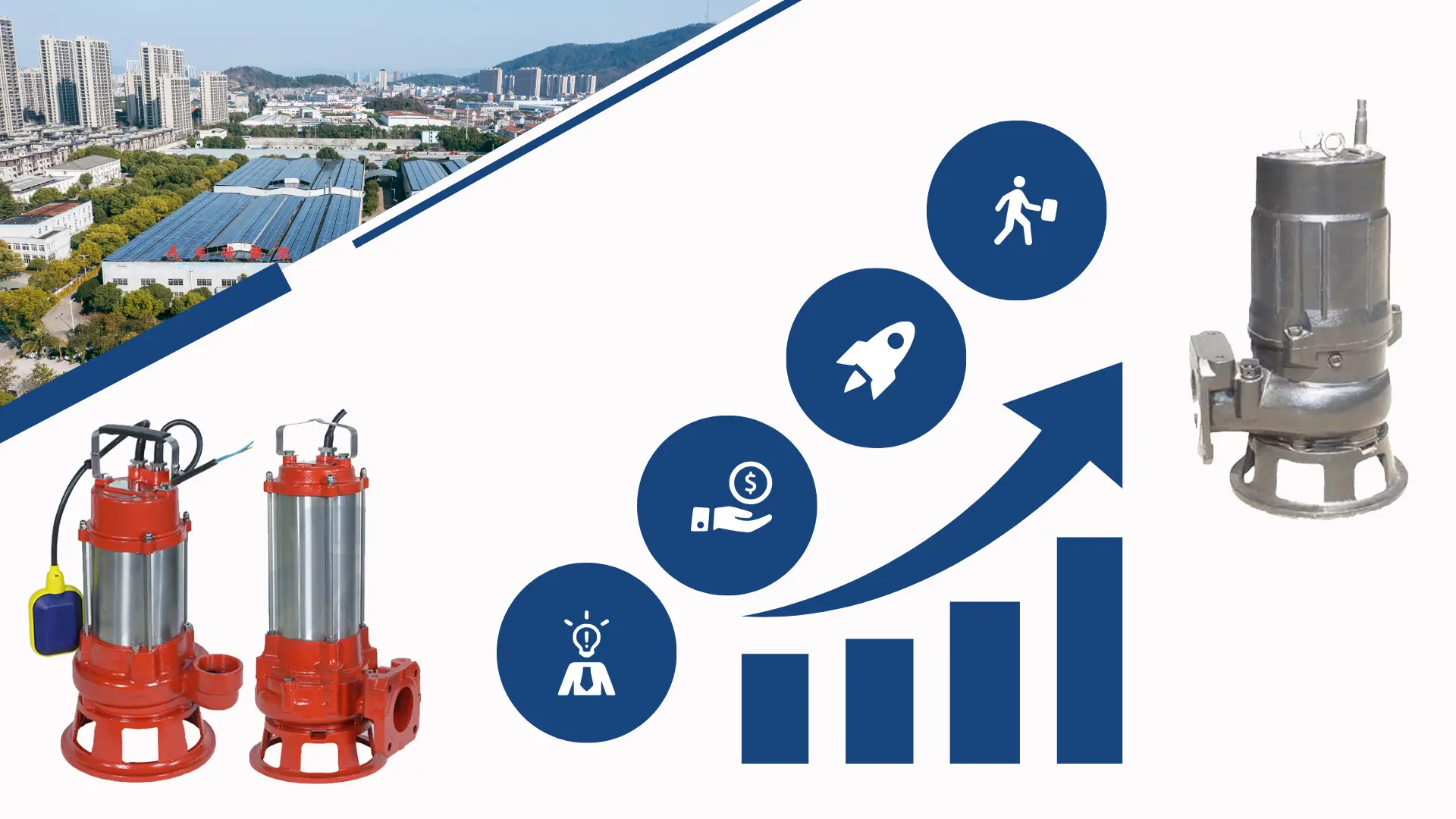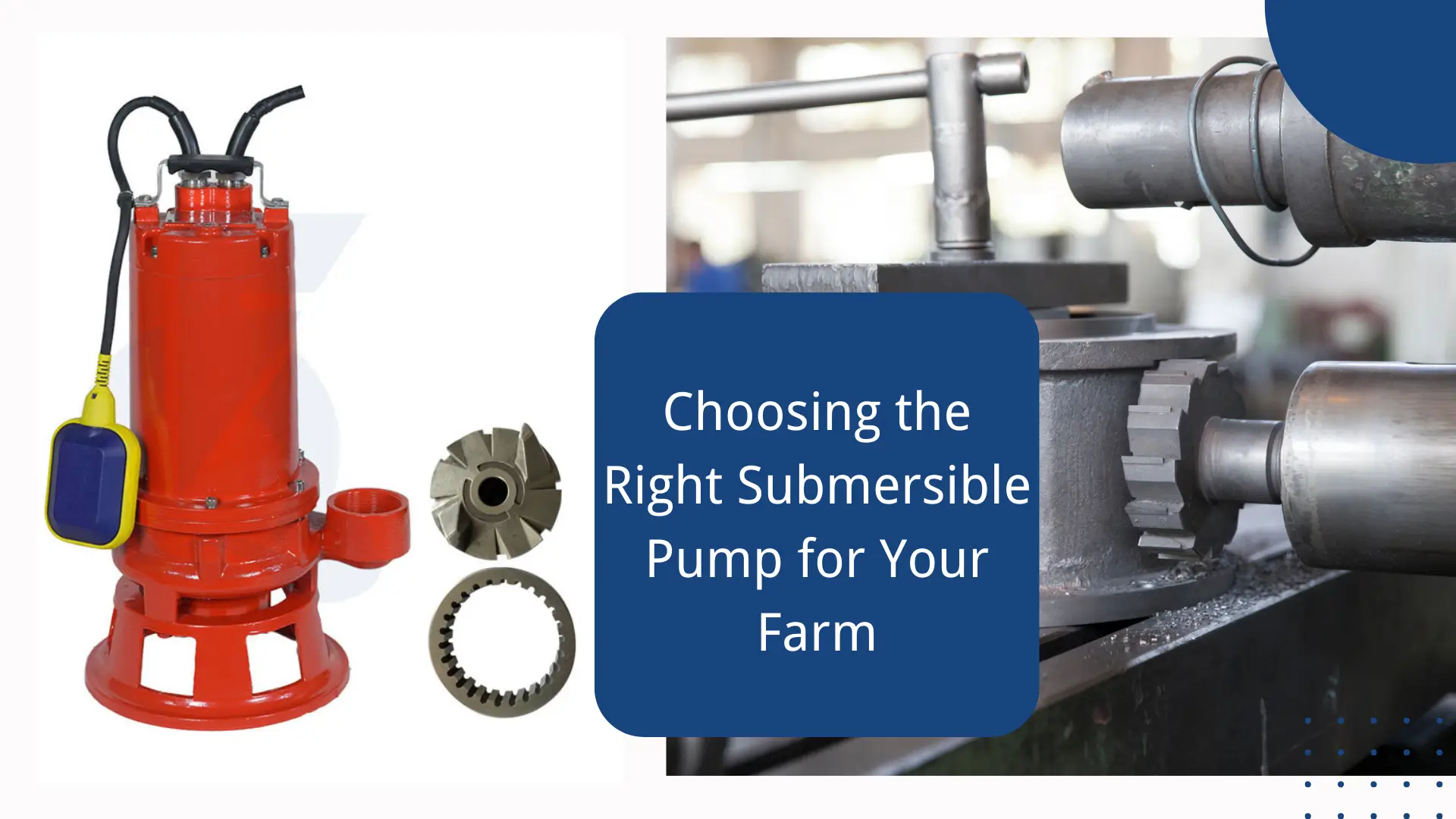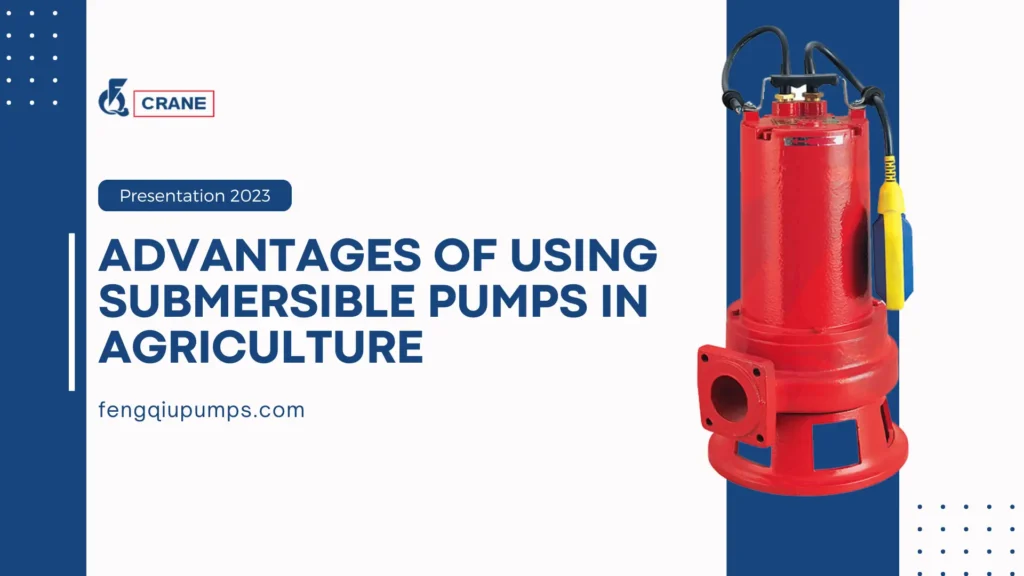The uniformity and workability of the submersible pumps have attracted many to their usage in agriculture.
This paper highlights some of the primary advantages of using submersible pumps on cost benefits, environmental considerations, and selection tips for farm use.
Introduction to Submersible Pumps
Operate While Submerged
That is contrary to what would happen with other pumps, which would normally operate above the level of the water.
Since they would be positioned in the source of the water, their operation would be assisted by pressure from outside.
This design not only heightens their efficiency but extends their utilization to deeper water sources, such as wells or boreholes, beyond what would be accessible by conventional pumps.
Pushing Water from Below
Conceived with a sealed motor, this accomplishes hydraulic pressure to transit water effectively through a discharge pipe.
This mode of operation proves beneficial for farming as there is regular and continuous delivery of water.
It can push the water from its belly upwards to higher levels, thus ensuring that irrigation and other requirements take place without any hindrance.
Benefits to Agricultural Practice
Their power-saving operations translate into lower electricity bills, making them quite economical for irrigation applications.
Again, the strong nature of a submersible pump and its low maintenance mean higher returns on investment for farmers by serving them for longer without a need to constantly repair or replace it.
It is a need that ensures productivity is maintained, and that crops get all the water they might require to grow effectively.
Generally speaking, submersible pumps are worthy investments for any modern farm.

Cost Benefits of Submersible Pumps for Farmers
Energy Costs Decrease
Unlike their surface-mounted counterparts, which work by drawing water from a distance, the submersible pumps are always plunged into the water source, like wells and reservoirs.
With submersible pumps, there is less energy consumed since it will not fight against gravity to deliver the water.
This efficiency can cut off significant costs of electricity bills for the big farm that requires reliable irrigation.
The savings will accumulate over time and may as well contribute to reinvestment into other essential areas of their operation, such as an upgrade of equipment or crop diversification.
Lower Maintenance Expenses
Since they are submerged, they do not easily suffer environmental elements such as dust, debris, and weather conditions that might put them to wear and tear.
This design ensures minimal chances of damage; hence, fewer repairs and replacements.
Consequently, farmers can plan for considerable savings into maintenance costs during the life cycle of their pumps.
This financial elbow room allows them to direct means into other urgent areas of their farming business, such as quality improvement or diversification of their products.
Increased Agricultural Production
This consistency of water availability is very critical for crop growth and may result in increased yields.
Good irrigation management can ensure that crops get the right amount of water at the right times for healthier plants with fewer risks related to drought stress.
Higher yields not only ensure better financial returns to the farmer but also contribute positively towards food security in their communities.
Environmental Impact of Using Submersible Pumps
Water Conservation

Most modern models are fitted with state-of-the-art technologies, such as variable frequency drives that allow for accurate regulation of water flow rates.
This level of control ensures that minimal wastage of water is experienced and maximum utilization of the water is achieved, which even becomes vital in areas where water is actually scarce.
Optimized utilization of water helps in conserving the precious liquid resource by farmers themselves and thus supplies it for other uses, thereby creating a more sustainable agriculture environment.
Soil Erosion is Reduced
This helps in minimizing the chances of runoff that will take the topsoil.
Healthy and well-managed soil promotes plant growth, enhancing agricultural resilience; hence, it forms an integral part of responsible and sustainable farming.
On average, with submersible pumps supporting even water distribution, they tend to protect soil health and, by extension, improve the long-term sustainability of farming.
Choosing the Right Submersible Pump for Your Farm
Assessing Your Needs
One should base his needs on several factors, like the size, kind of crops grown on the farm, and the irrigation methods to be used.
Such understanding of requirements will make farmers capable of choosing pumps that are appropriately sized with the right flow rates.
A well-chosen pump thus goes a long way in enhancing irrigation efficiency and contributes toward better crop management.
Read More:
Understanding Pump Specifications
Key specifications to look out for in a pump include the flow rate, power consumption, and depth capabilities.
Each one of these factors can make or break a pump with respect to meeting the particular needs required by a farm from a water source.
Farmers are, therefore, able to select pumps that meet their immediate needs but also have extra capacity for future expansion of the irrigation needs of the farm.

Professional Consultation
Consultation with professionals in the field or farmers who have experience with successful implementation of a submersible pump can avail information out of reach in other circles.
Such discussions help to clarify the pros and cons of different models, therefore informing the farmer’s choice in congruence with their agricultural practice and objectives.
It eventually leads to expert knowledge translated into more effective decision-making and improved outcomes on farming operations.
Conclusion
From cost-effectiveness and output to environmental advantages, submersible pumps offer many advantages to farmers.
By cautiously choosing the right pump, identification of such advantages will add value to farmers’ work while considering sustainable agriculture simultaneously.
It is not only a decision to invest in efficiency but a way toward a more sustainable and productive future in farming.

